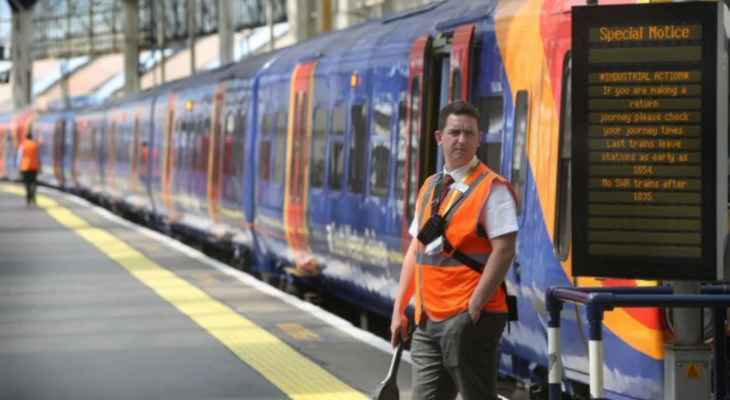Some 40,000 rail workers across much of the UK have gone on strike demanding higher wages and working conditions and an end to plans to close jobs.
About 80 percent of train runs were halted early in the morning when workers at 15 railroad companies went on strike, disrupting travel within and between cities, forcing millions of passengers to either use public buses or cars or stay at work from home. and the impact of the strike is expected to last until early Thursday morning.
In a statement, the Cabinet called on the unions to call off the strike, explaining that it was “deeply concerned about the impact of the strike on the daily lives of citizens” and the Department for Transport indicated that “the rail union is determined to cause more suffering to passengers in all regions” across the UK.
For its part, the Railway Workers’ Union accused Transportation Secretary Grant Shapps of preventing railroad companies from negotiating higher wages and better working conditions with unions.
Some 5,500 rail workers from seven rail operators plan to go on strike next Saturday, causing further disruption to travel over the weekend.
The railroad unions have decided to go on strike again on 18 and 20 August, while the London Underground workers will go on strike on 19 August.
The unions are demanding that workers respond to demands for a 7 percent pay rise, agree on the number of jobs to be closed in the industry and improve working conditions.
The companies offered a 3 percent pay increase in exchange for the union and workers agreeing to cut jobs and change working conditions.
Last month, railroad workers organized the largest strike in the country’s history in three decades to enforce these demands, which at the time completely paralyzed traffic and domestic travel.
The government is seeking to reform the rail sector so that it remains viable and is not subject to severe financial pressure or bankruptcy, and has also sought to reduce the number of train tickets, which have increased significantly over the past three years.
It is worth noting that most train operators are not state-owned, with the exception of the rail company Network Rail, and the government has provided £16 billion in funding to help rail companies during the Corona outbreak. when he witnessed a significant decline in his earnings due to the general closure situation.
Source: El Nashra
